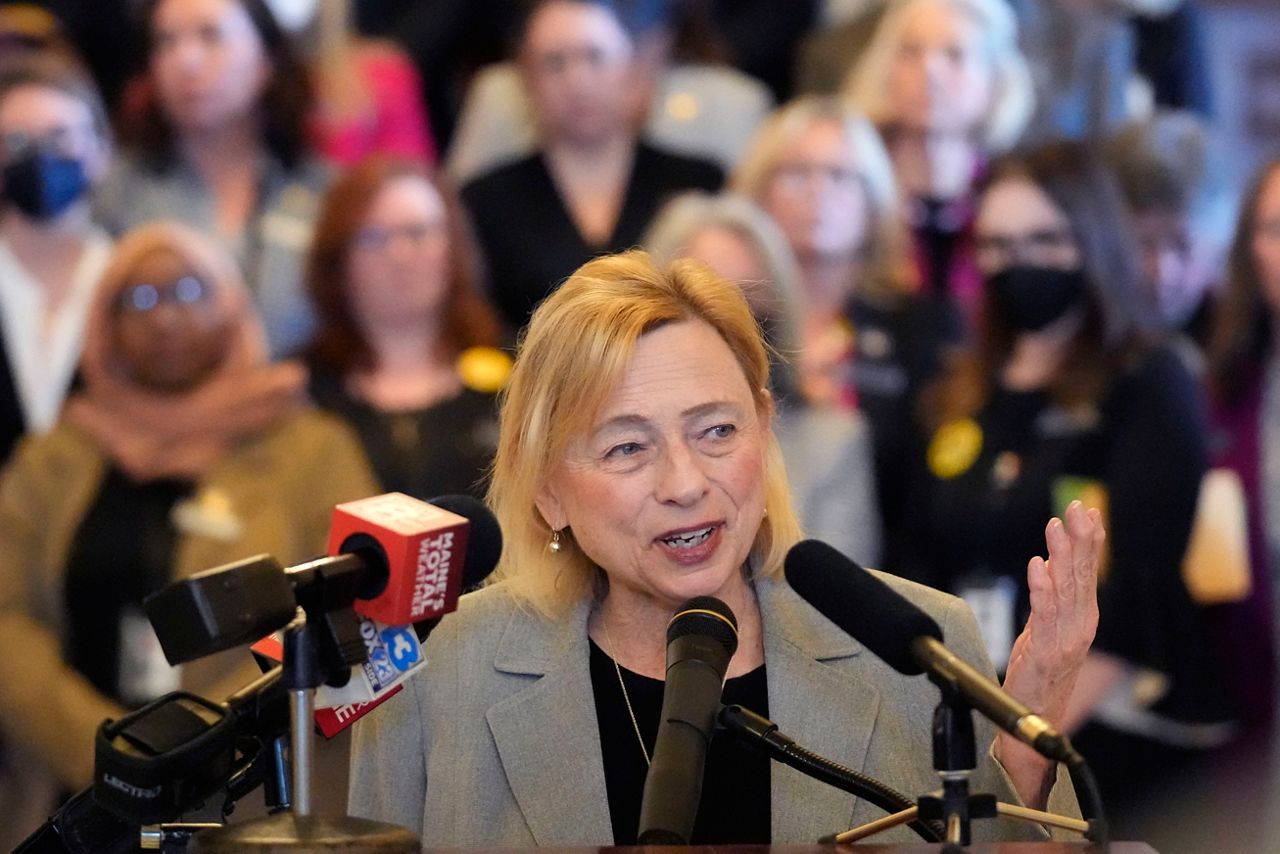Democrats advanced a bill Friday to allow women in Maine to have abortions later in pregnancy, setting the stage for what’s likely to be heated debate when the bill reaches the House and Senate.
The Judiciary Committee voted 7-3 along party lines, with Democrats supporting the bill and Republicans voting against it.
With majorities in the House and Senate, Democrats have the votes to pass the bill into law without any Republican support.
The Maine Medical Association and others are backing LD 1619, a bill put forward by Gov. Janet Mills to allow abortions past the point of viability, generally considered 24 weeks, if a doctor recommends the procedure.
Current law allows abortions after viability if it is necessary to preserve the life or health of the mother. The bill removes that language and instead would allow abortions after viability “only when it is necessary in the professional judgment of a physician.”
An amendment approved Friday adds language to ensure that physicians recommending the procedure follow standards of care established by the medical community.
Republicans on the committee said they felt uncomfortable that there wasn’t a clearer definition of those standards.
“It’s this incredibly fluid standard that no one can seem to put real guardrails on and what influences it and what doesn’t,” said Rep. Rachel Henderson (R-Rumford).
Democrats said it would not be possible to anticipate every situation that a pregnant woman might face.
“We can’t as lawmakers write legislation that pinpoints how a health care provider has to act when the unimaginable happens to a woman,” said Sen. Anne Carney (D-Cape Elizabeth).
Friday’s vote followed two contentious work sessions in which Republicans questioned whether Democrats tried to keep the public in the dark about when the vote would take place.
A meeting on Thursday was repeatedly interrupted when House members had to leave to go vote on other legislation. Democrats voted to table the bill but did not announce when they would take up the bill again.
Then on Friday, with about 90 minutes notice, Democrats added the bill to a previously scheduled meeting.
“I think it was about not wanting the public to know,” said Sen. Eric Brakey (R-Auburn).
House chairman Rep. Matt Moonen (D-Portland) objected to that characterization, saying that it violated rules of decorum by attacking his character.
Carney explained that the committee is not authorized to meet past Friday, so the committee had no choice but to vote on the bill.
She also said the public had its chance to weigh-in on the measure in May, when the committee sat for 20 hours of testimony on the bill, mostly from opponents.
Maine Right to Life is leading the opposition, and for many, the bill presents an unacceptable expansion of abortion rights at a time when many states are limiting access to the procedure.
Mills said she put forward the bill after hearing the story of a Yarmouth woman who had to travel out of state after finding out her 32-week-old baby had a rare and lethal condition.
She said limitations in current Maine law and the national landscape prompted her to act.
Last June, the U.S. Supreme Court overturned Roe v. Wade, the 1973 landmark decision granting a federally protected right to an abortion.
The decision sent the issue back to the states, where a patchwork of abortion regulations means most abortions are banned in 14 states, according to The New York Times.
Mills said nearly one-in-three women across the U.S. no longer have access to safe abortion care, describing that as “cruel, callous, inhumane.”
On Friday, Maine Rep. Amy Kuhn (D-Falmouth) said the bill will help women in difficult and rare circumstances.
“Post-viability abortions are exceedingly rare,” she said. “They will remain exceedingly rare under this provision should it pass. But it will allow for a pathway for women and in some cases children, who need this care who discover very late they are pregnant or that they are carrying a child that’s not in a condition that’s not compatible with life.”









